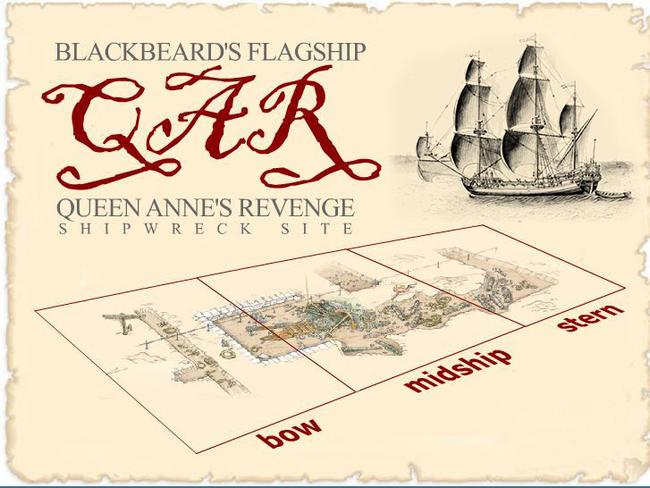The incredible tools found in the wreckage of Blackbeard’s flagship, Queen Anne’s Revenge
AMONG the world’s most infamous pirate ship wreckage, archaeologists are making some chilling discoveries. Guess what this pointy thing does.

BLACKBEARD had something of a challenge on his hands in keeping his pirate crew fit and fighting, an excavation of his flagship reveals. And it’s because of their sex lives.
Archaeologists have been excavating the famous pirate ship Queen Anne’s Revenge, which ran aground on a North Carolina sandbar in 1718.
The Queen Anne Revenge Project says researchers are now recovering many artefacts from the wreck, including a surprising number of medical objects.
This suggests the famous pirate captain had invested heavily in keeping his men healthy.
Syphilis, it seems, was something of a key concern.

Key among the finds was a urethral syringe. It’s use was no delicate matter.
Chemical analysis reveals the device was used to inject mercury into the crew’s male members in an effort to alleviate the painful effects of syphilis.
‘MAGIC’ SWORDS REVEALED: Medieval metal mystery traced to Germany
The sexually transmitted disease was rife among sailors of the era.
“Treating the sick and injured of a sea-bound community on shipboard was challenging in the best of times,” Linda Carnes-McNaughton, a volunteer archaeologist on the excavation project wrote in a recent paper.

Carnes-McNaughton told science blog Live Science that Blackbeard’s faith in the era’s doctors was poorly placed — the treatment was almost as bad as the disease: “Eventually the mercury kills you,” she said.
HORRIBLE HISTORY: The true stories that inspire Game of Thrones
The syringe was not the only fearsome and discomforting device used by the medicos of the time.
Also found in the wreck were the remains of two clyster pumps — large, clumsy devices used to force medications into the rectum where it was believed it would be rapidly absorbed.

Blackbeard, whose real name may have been Edward Thatch, had commandeered the former French slave ship in 1717.
It had been an easy attack: Most of the ship’s French crew had been sick or dead.
This alone should have told him something about the quality of the three ship’s doctors. But Blackbeard forced the trio — along with the cook — to stay aboard and support his own crew.
A few months later, the ship ran aground and Blackbeard abandoned most of his crew — only to die in battle a year later.




